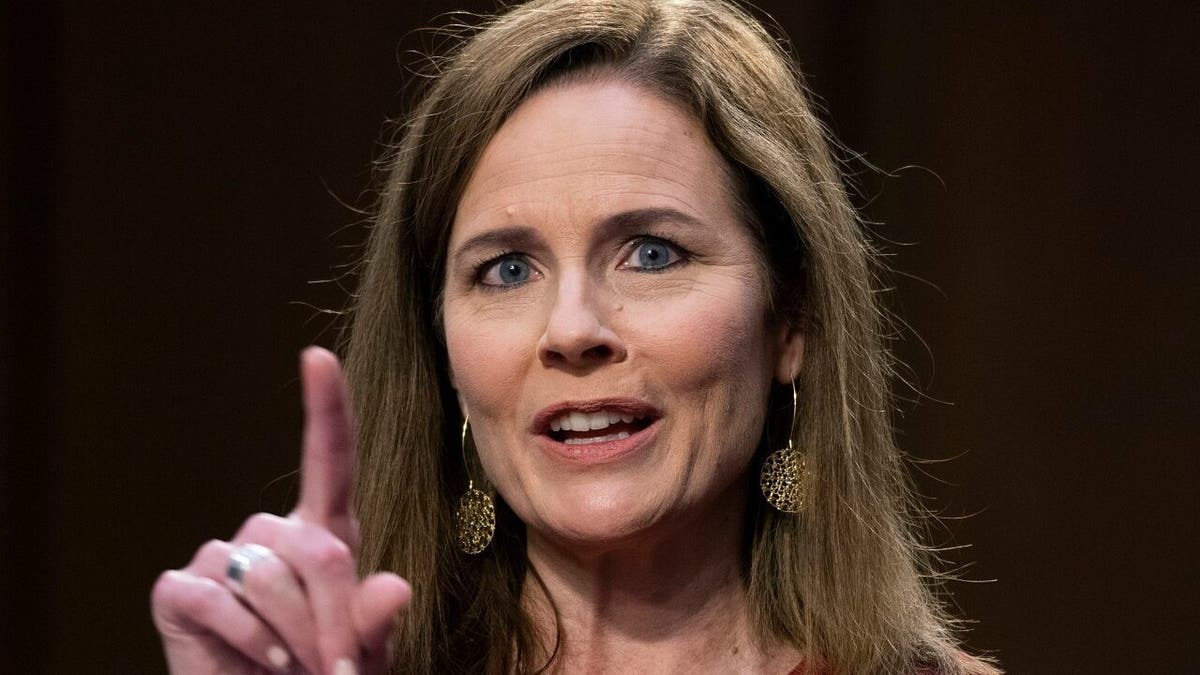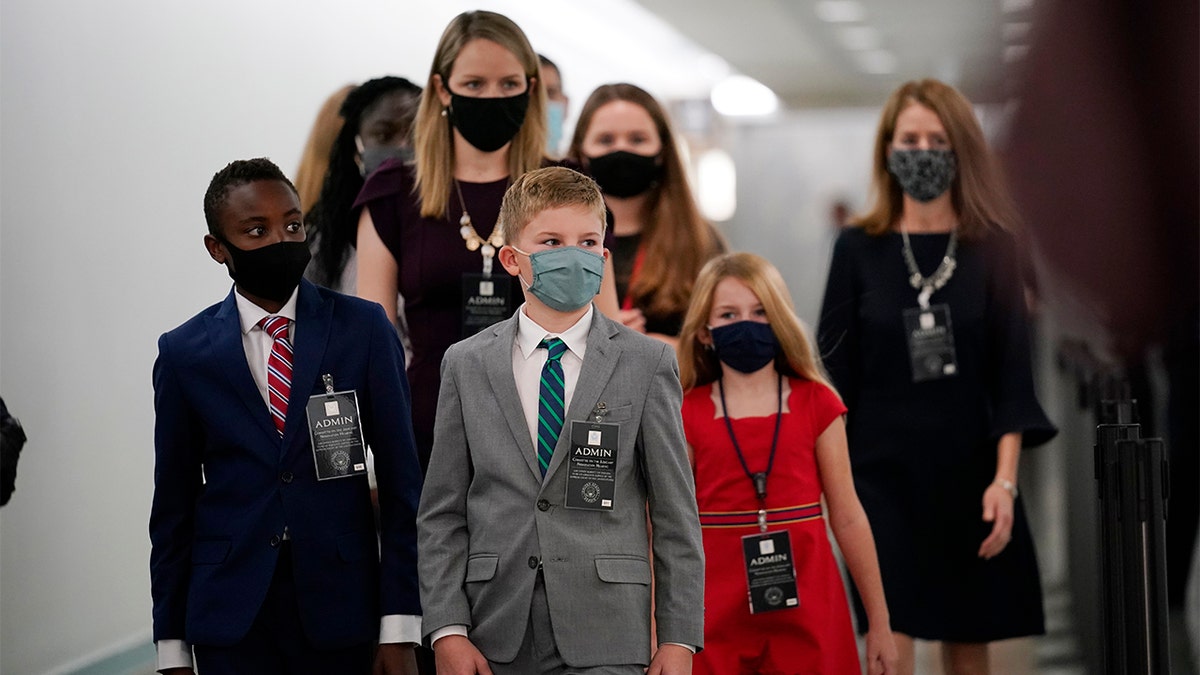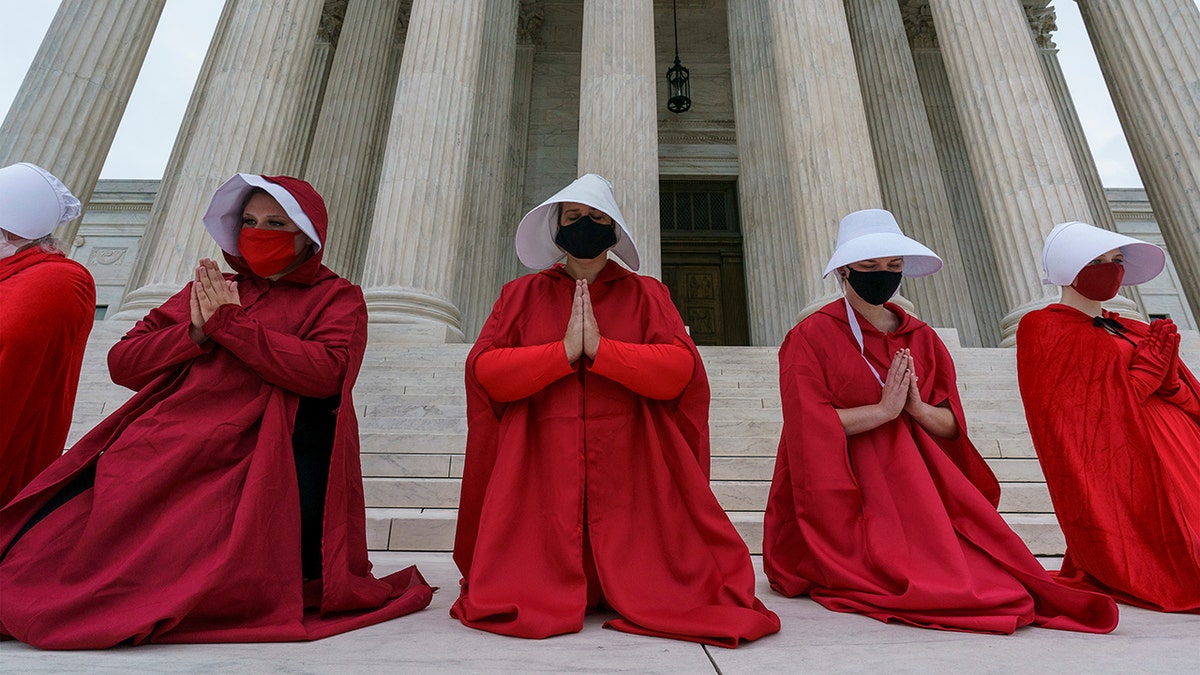Media passes judgment on Amy Coney Barrett's Catholic faith
Senate Judiciary Committee member Ben Sasse reacts to claims and criticisms on 'Fox News @ Night'
Democrats largely avoided directly asking Supreme Court nominee Judge Amy Coney Barrett about her Catholic faith during four days of confirmation hearings this week.
Senators asked Barrett about her views on Roe v. Wade, abortion in general, illegal immigration, the Nov. 3 presidential election and other hot-button issues but stayed away from asking the nominee about her Catholicism.
"I am thankful that the ad hominem attacks of the past on Judge Barrett’s faith were absent this week, and I hope that is because our elected leaders are learning that such attacks are out of step with the Americans they are there to serve," Travis Wussow, vice president for public policy and general counsel at the Ethics and Religious Liberty Commission, told Fox News.
Wussow added that the hearings this week need "to be a reminder that people of faith in this country vote for Republicans and Democrats, and religious discrimination has no place in the public square."

Supreme Court nominee Amy Coney Barrett speaks during her confirmation hearing before the Senate Judiciary Committee on Capitol Hill in Washington, Tuesday, Oct. 13, 2020. (Tom Williams/Pool via AP)
"We echo what Judge Barrett has said herself," Wussow said. "One's religious beliefs do not bear on the discharge of the duties of their public office."
If Barrett is confirmed, she will be the sixth Catholic justice to sit on the Supreme Court.
California Democratic Sen. Dianne Feinstein received bipartisan backlash when she told Barrett that the "dogma lives loudly within" her during the judge's 2017 hearing Seventh Circuit appellate court hearing.
This time around, however, Feinstein and her Democratic colleagues did not repeat the past by avoiding any comments directed at Barrett's Catholicism. In fact, the California senator praised Barrett's seven children, who were present at Wednesday's hearing, for being well-behaved and asked the judge to personally introduce them before the committee.

The children of Supreme Court nominee Amy Coney Barrett arrive on Capitol Hill before she will begin her confirmation hearing before the Senate Judiciary Committee, Monday, Oct. 12, 2020 on Capitol Hill in Washington. (AP Photo/J. Scott Applewhite)
Feinstein did, however, appear to be caught discussing Barrett's faith on a hot mic.
"She’s been pro-life for a long time. ... I suspect with her, it is deeply personal and comes with her religion," the senator can be heard saying.
2020 Democratic presidential nominee Joe Biden, who is also Catholic, told reporters on Monday that the Supreme Court nominee's faith "should not be considered" as part of her nomination process.
“I have no questions about her faith,” the former vice president said.
2020 Democratic vice presidential candidate Kamala Harris similarly told reporters on Monday that Barrett's faith should "absolutely not" be considered during the nomination process.
"One’s faith should never be the basis of supporting or rejecting a nominee," the California senator said.

Democratic vice presidential candidate Sen. Kamala Harris, D-Calif., waves to a television crew as she arrives on Capitol Hill for the confirmation hearing of Supreme Court nominee Amy Coney Barrett. (AP Photo/Jacquelyn Martin)
News outlets and social media users have taken a different approach to addressing Barrett's faith and ideology, which Democrats fear will impact her decision-making as a Supreme Court Justice for a generation, as Republicans move closer to confirming the judge by late October.
Barrett’s faith has drawn scrutiny thanks to her previous role as a "handmaiden" in People of Praise, a small Christian community formed in the 1970s that views men as household leaders. She and her husband lived in a home owned by co-founders of the group when they were in law school, according to public records.
Newsweek related Margaret Atwood’s dystopian novel "The Handmaid’s Tale," in which "women’s bodies are governed and treated as the property of the state under a theocratic regime" to Barrett's nomination.

Activists opposed to the confirmation of President Donald Trump's Supreme Court nominee, Judge Amy Coney Barrett, are dressed as characters from "The Handmaid's Tale," at the Supreme Court on Capitol Hill in Washington, Sunday, Oct. 11, 2020. (AP Photo/J. Scott Applewhite)
Refinery29 published a piece about Barrett titled, "This is Amy Coney Barrett, the Potential RBG Replacement Who Hates Your Uterus," which says she is "well-known" among conservatives for "putting her religious convictions at the forefront of her work and identity."
Washington Post op-ed writer Jennifer Rubin tweeted that Barrett is a "desperate to please the far right," and "her partisan/ideological furor are precisely why she should not be on the high court."
CLICK HERE TO GET THE FOX NEWS APP
The left is demanding that Democrats resist Barrett’s nomination with everything they have. But with the election so close, Democrats are wary of missteps that could hurt their bid to wrest back control of the White House and the Senate majority.
The Associated Press contributed to this report.










































